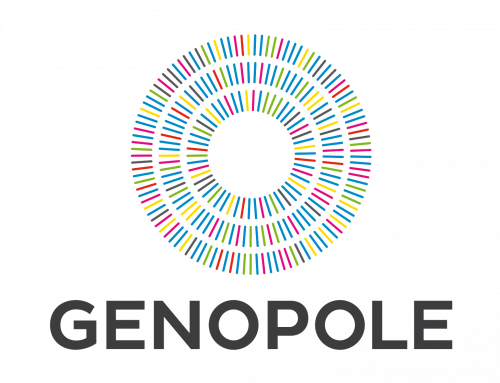Intership title : KG-EDS : Knowledge graphs for early diagnosis of SEPSIS
Description :
Sepsis is a critical medical emergency characterized by a dysregulated immune response to infection, which can be caused by bacterial, viral, fungal, or parasitic pathogens. This overwhelming immune response often leads to organ dysfunction, leading to a high risk of mortality if not diagnosed and treated promptly. The complexity and variability of sepsis symptoms, coupled with the diverse biological pathways involved, make early diagnosis challenging. Misdiagnosis or delayed identification can lead to severe outcomes, making it essential to have precise tools to recognize sepsis in its early stages. Ontology-based knowledge graphs offer a powerful approach to address these diagnostic challenges by representing complex relationships between concepts in specific domains, such as medicine. These graphs enable the integration of heterogeneous data and provide a structured way to model and reason about medical knowledge, ultimately facilitating improved decision-making. Knowledge graphs can organize medical information and diagnostic criteria in a way that supports healthcare professionals in identifying sepsis with greater accuracy.
This internship project aims to design and develop a knowledge graph grounded in medical ontologies to aid healthcare professionals in the early detection of sepsis. The system will leverage patient medical data—such as symptoms, laboratory results, and medical history—and use ontologies to map the complex interconnections between these data points and sepsis diagnostic criteria. A core objective is for the knowledge graph to answer essential competency questions, such as “How do I identify sepsis early?” thereby providing crucial insights for timely patient care.
The ultimate aim of this project is to build an ontology-based knowledge base that supports decision-making for early sepsis diagnosis
This Master’s internship is part of IHU PROMETHEUS (PRecisiOn MedicinE for healTHcare associatEd and commUnity acquired Sepsis), an institute dedicated to comprehensive sepsis research. The PROMETHEUS initiative seeks to halve the mortality and long-term effects of sepsis within the next decade.
This internship also serves as the initial phase of a broader research project that will continue as a doctoral thesis.
You will need :
-
- Conduct a literature search on the use of knowledge graphs and ontologies in the medical field, with a particular focus on sepsis detection.
- Study and select relevant existing medical ontologies appropriate for representing sepsis-related medical concepts (symptoms, biomarkers, clinical scores, etc.). (e.g. SNOMED CT, International Classification of Diseases (ICD-10), Human Phenotype Ontology, Human Disease Ontology ( DOID) ) and identification of key concepts related to sepsis.
- Model a sepsis-specific ontology based on existing standards, integrating the diagnostic criteria used in medicine and responding to the skill issues identified.
- Create a knowledge graph representing patient data and their correlations with sepsis diagnostic criteria.
- Implement reasoning algorithms on the graph to determine whether a patient is at risk of sepsis, or has sepsis based on the medical data entered.
- Validate the system using real or simulated patient cases, to test the accuracy and relevance of the graph in aiding diagnosis.
- Write an internship report detailing technical choices and results obtained, as well as recommendations for future improvements.
Applicant profile:
The master thesis student must have a strong knowledge in computer science. The following skills are strongly recommended:
-
- Ontologies and knowledge modelling (OWL, RDF, Sparql).
- Programming skills (Python, Java or C++ language).
- Ability to work with structured and unstructured data.
- Basic knowledge of medical sciences or interest in health and medical diagnostics.
Bibliography :
[1] Melissa Yan, Lise Tuset Gustad, Lise Husby Høvik Terminology and Ontology Development for Semantic Annotation : A Use Case on SEPSIS and Adverse Events– 08-22-2022 https://www.semantic–web–journal.net/content/terminology–and–ontology–developmentsemantic–annotation–use–case–sepsis–and–adverse–0
[2] ARGUELLO CASTELEIRO & al. A Case Study on Sepsis Using PubMed and Deep Learning for Ontology Learning. https://www.researchgate.net/publication/317165452_A_Case_Study_on_Sepsis_Using_Pu bMed_and_Deep_Learning_for_Ontology_Learning
[3] Piriou, S. Despres, J. Nobecourt, C. Le Roy, C. Irles Graphe de connaissance et ontologie pour la représentation des données de la LLC. PFIA 2023. https://pfia23.icube.unistra.fr/journees/info–medic/articles/IAS2023_paper_Piriou.pdf
[4] Azzi, Sabrina, Nouvelle méthodologie de construction d’ontologies médicales : cas d’étude : diagnostic de la pneumonie. https://di.uqo.ca/id/eprint/1374/
Start Date of internship
February/March 2025 for 6 months
Location of Master 2 internship
Laboratoire d’Informatique, BioInformatique, Systèmes Complexes (Université d’Evry –Paris Saclay)
Names and contact details of project leaders
- Date de l’appel : 15/11/2024
- Statut de l’appel : Non pourvu
- Contacts cotés IBISC : Yasmina SADI (MCF Univ. Évry, IBISC équipe SIAM) , Zaineb CHELLY DAGDIA DAVID/UVSQ, Nacéra SEGHOUANI , LISN/Centrale Supelec
- Sujet de stage niveau Master 2 (format PDF)
- Web équipe SIAM





